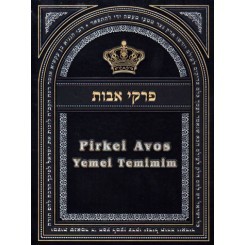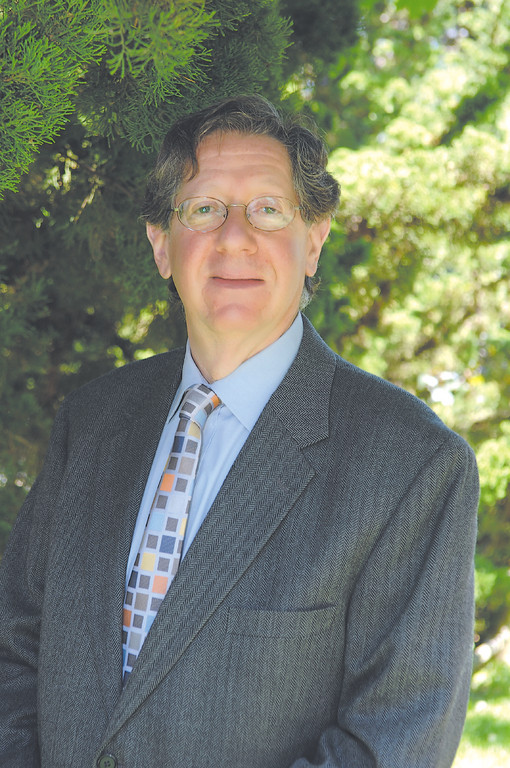The Kosher Bookworm Pirkei Avos Chapters One and Two: A New Commentary by Rabbi Yonason Sacks
The text of Pirkei Avos is the only segment of the Talmud that does not deal with halachah. The commentator of this new edition is the newly appointed Rosh Yeshiva at Lander College. The timing of the publication and the appointment could not have been more fortuitous. Taken together, these two events come to aptly personify the unique relationship that a teacher and student have in the Jewish tradition.
Perhaps no one has ever more properly placed that relationship in its proper perspective than Rabbi Avraham Davis who, in his introduction to his own commentary to Pirkei Avos, stated the following:
“The relationship between a rebbe, a teacher, and a talmid, his pupil, is considered like that of a father and son. A father brings his son into this world, while through his ethical teachings and moral discipline, the rebbe brings his disciple into the future world. Since it contains the teachings of the Sages concerning the discipline of human behavior and thought, which, when perceived, make man worthy of the future world, this Mesechet has been called Avos or Fathers.” Thus, the role that Rabbi Sacks will come to serve his students at Lander has, in this quote from Rabbi Davis, both theme and goal.
The commentary of Avos under review this week was composed by a Rebbe, who is also a Rosh HaYeshiva, a master teacher and interpreter of our religious tradition. This duality compliments each other thus further enhancing the value and quality of both.
Rabbi Sacks is a leading posek and author of eighteen other literary works. He comes to this by way of a rich family tradition. His great-grandfather was the late chief rabbi of Jerusalem, Rav Zvi Pesach Frank, who was a leading and effective rabbinic leader during the State of Israel’s formative years. His grandfather, Rabbi Menachem Sacks was a leading educator in Chicago, and his father, Rabbi Louis Sacks was a rabbi in Delray Beach, Florida.
Prior to his appointment at Lander, Rabbi Sacks served for over eighteen years as a rosh yeshiva at Yeshiva University, where he was ordained in 1984, and from where he received the advanced rabbinic degree of Semicha Yadin Yadin two years later.
The publication of his commentary on Avos, chapters one and two, into English should prove to be a boon to those who will be continuing their studies of this tractate after Shavuot. The depth of this commentary will surely enhance the learner through Rabbi Sack’s skilled use of classical and modern commentators.
An example of this method can be demonstrated in the following take on the teaching from chapter two, mishneh eight:
“The more schooling the more wisdom.”
As an introduction to this teaching, Rabbi Sacks cites Rabbeinu Yona, who teaches that wisdom refers to logical reasoning that underlies halachic argument. He then contrasts this with the Rambam’s teaching that one who has many students to challenge him will see his argumentations sharpened and elevated.
After making these points clear, Rabbi Sacks then goes on to cite Rabbi Yitzchak Hutner’s teachings based upon his introduction to “Pachad Yitzchak: Iggeros and K’savim,” which emphasizes the critical importance of studying Torah, specifically inside of a yeshiva.
A hint as to what kind of method and philosophy Rabbi Sacks will employ at Lander may be gleaned from the following teachings from Rabbi Hutner:
“…If a person would claim that he will die of starvation if he does not eat the royal delicacies of a king, one would have a hard time believing him. After all, royal delicacies and starvation represent two opposite extremes on the spectrum of food, and why should the absence of the highest level of food automatically bring a person to the lowest level?”
“Indeed, one could seemingly find many viable food alternatives that are not quite royal delicacies, but nonetheless prevent starvation. When it comes to Torah, however, R’Hutner states, this claim actually does hold true. Torah study is the equivalent of ‘royal delicacies.’ If a person does not nourish his soul with the highest level of spiritual food, then he will automatically default to the other extreme, dying of starvation--that is, succumbing to his yeitzer ha’ra and worshipping idolatry. There is simply no middle ground and no allowance for a ‘vacuum’ in the spiritual world.”
These are words and teachings that give both heft and quality to the teachings of Rabbi Sacks and that will serve him in good stead in the many years to come in his stewardship at Lander College.
I conclude this week’s review, mindful of the upcoming Shavu’ot festival, by citing the following teaching from Rabbi Sacks culled from an essay entitled, “Anticipating Kabolas HaTorah.”
“How do we prepare ourselves for the Shavu’ot experience? Which aspects of our avodas Hashem require the most considerable emphasis?”
Rabbi Sacks goes on to cite Avos, commenting on a teaching by Rabbeinu Yona in the following manner:
“Commenting on the teaching of Rav Eliezer ben Azaria, ‘im ein derech eretz, ein Torah’ [Avos 3:17], Rabbeinu Yona explains, Torah can only reside in a ba’al middos tovos, one who possesses a refined character.”
All else, implies Rabbi Sacks, is for naught without the basics of human decency, honesty and respect. How right both he and our Sages are. This teaching is the basis for all that we learn from Avos, and Rabbi Sacks performs an excellent task by reinforcing these teachings in a firm manner for all of us to learn.

 50.0°,
Overcast
50.0°,
Overcast 







